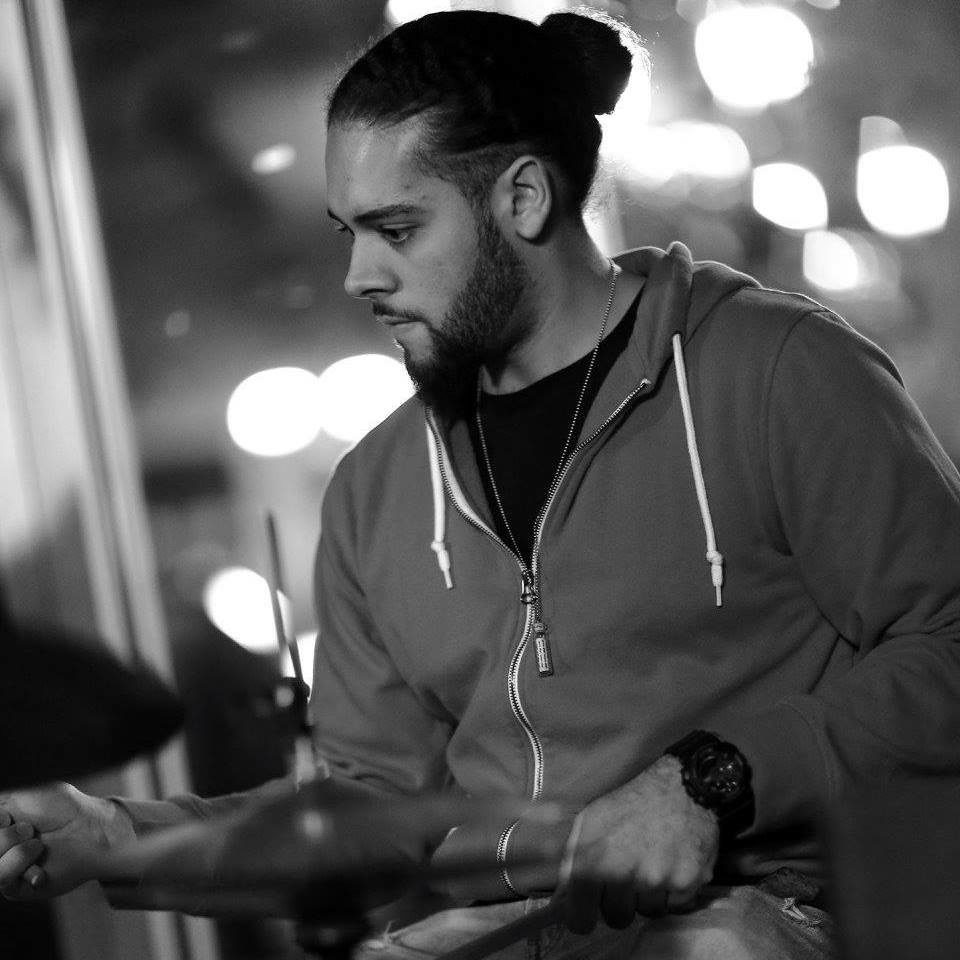
Improvisation is everywhere. I hear it referenced when talking about sports, music, cooking, business, basically everything that requires creative thinking. And I believe we all have the capacity for creative, improvisational thinking, albeit in slightly different contexts (such as improvising in jazz vs. improvisation in writing a rock song) but there is use of improvisation all over the place in our everyday life. So some people think that maybe they are not improvisors because they don’t feel comfortable playing a jazz tune, but I challenge that belief. Maybe you just need more time to work on that skill, or maybe your improvisational skills lend themselves to songwriting. You don’t need to be a live, in the moment improvisor to use your improvisational mind, you have to be engaged, listening, and creative.
Improvisation is what makes me feel most alive when I’m in front of my instrument.
We spend so much time working up these very specific exercises, focusing so much on playing them correct that to have the opportunity to play whatever comes to your mind, is an extremely rewarding experience.
In order to improvise, you need to have an understanding and command of the vocabulary.
If you have say, never played guitar before, you will have to spend time learning fundamentals and gaining an understanding of the instrument before you can improvise. Once you start to gain some basic skill with a musical phrase, and you don’t have to think so hard about the physical aspects of playing it, such as where you are putting your fingers to create a chord or to play a scale, then you can start to use that newly acquired skill as a jumping of point for improvisation. I think of the broad concept, what a given series of exercises is trying to accomplish. While I work very specifically on exactly what is written on the page, I also will allot time toward the end of this very specific practice to improvise within the broad idea.
For instance, I have been working on incorporating left foot hi hat figures into my jazz comping. I have a few books I can draw upon, and I play through those exercises in the book exactly as written. After I have been though the exercises as written, I then will throw on the metronome at my working tempo and try to improvise ideas with my left foot while playing jazz time on the ride, and throwing in rhythmic figures I already play. Sometimes I may try to play an actual exercise I had worked on and attempt to naturally put it alongside the other vocabulary I already use in an attempt to assimilate it into my vocabulary, other times I just use the broad idea of playing ideas with my left foot and see what I come up with and just experiment with it.
Engaging with your “child-like mind”
I was lucky enough to take a few lessons with a phenomenal drummer back in Connecticut by the name Carmen Intorre Jr. He had recently had a son, Jake, when I first started taking lessons with him. And like any drummer that just had a kid, of course the first thing you do is plop them on your lap and sit in front of the drum set so they can play! I have stayed in touch with Carmen since I have moved out to Arizona, and his son has gotten older. On Facebook, it has been really cool to watch the videos he has posted as his son grew. In the beginning it was mainly him watching and listening to Carmen play, and then Carmen would put the sticks in his hands, and he would hit all the different parts of the kit, without judging himself, without any preconceived notions of what he was supposed to be doing, and the little dude couldn’t have looked happier! As time went on, I noticed that he was starting to pick up on ideas, and trying to copy certain things his dad was doing. The last video I watched I started to hear quarter note jazz time on the ride cymbal with some upbeats on the snare, even some little solo/fill figures that were the beginnings of legitimate jazz vocabulary! Now, this was all done through watching, listening and absorbing what his father and the other musicians around him were doing, but he also was taking these ideas and things he saw and just trying them out and playing them in his own way, taking what he’s sees and improvising by coming up with his own version of what he had seen someone else do.
This is the power of keeping the childlike mind when approaching an instrument. Since he has no shame in trying something out, no concept of whether something is “right” or “wrong”, he is not concerned with anyone’s opinion of what he is doing. He is fully immersed in the joy of playing a musical instrument. He is only 3 or so years old and he can already play some basic jazz time and has some fill ideas that I can tell will eventually morph into jazz vocabulary! This allows you to be able to enjoy things just as they are and where you are in the moment, without allowing outside (other people) or internal (your own mind) influences to rob you of the joy that is playing an instrument.
When you are improvising, you have to be ok with things not being perfect all the time. You have to be ok with experimenting, trying things out, and discovering things that you may not have found in a book (which to me is the exciting part!). Or finding things that are the culmination of ideas you have found in your book work, ideas that you decided you wanted to combine in the moment, that end up becoming a unique part of your playing that would not have come about had you not made time to experiment and improvise. And like anything else, the more you practice improvising, the better you get at it!
One of the exercises I have always naturally done myself, and now one that I do with my students, is the idea of sitting down and just playing whatever comes into your mind, and not thinking at all.
No structure, no preconceptions about what is to be played, no specific tempo, nothing. The only rule is you have to play SOMETHING on the drums. I find that I have discovered a lot through this form of totally free exploration, and those discovered ideas sometimes become something that I can use in more structured situations. It is also a way of playing in which NOTHING YOU PLAY IS WRONG, which can be a very helpful sentiment if we are weary of trying to improvise.
Anything you decide to play is exactly as it should have been.

Born and raised in Bridgeport Connecticut, Joshua is a newcomer to the Tucson area. Back east, he was active on the gigging scene, playing throughout Connecticut as well as some of the most popular venues in New York City for jazz and experimental music. Being a in demand freelance player, he is very knowledgeable in a variety of styles, and approaches them with respect, whatever the genre. Through learning these many styles he has formed an interesting way of expressing himself on the instrument, whether it be playing in a straight ahead jazz context, working with a Rock/Pop group, or even playing modern R&B and Hip Hop. He has done playing home and abroad, in Connecticut, New York, and California, to Morocco and Bermuda! Teaching has always been a big part of what he does. Having taught at many local studios and taught many private lessons in the Connecticut and New York area, he has a ton of experience in conveying ideas to students new to the drums, of all ages. He feels teaching is a big part of the experience of being a musician, and loves to share his knowledge with as many people as he can. Joshua is really passionate about sharing his love for the instrument, and helping people develop their unique way of musically expressing themselves.
